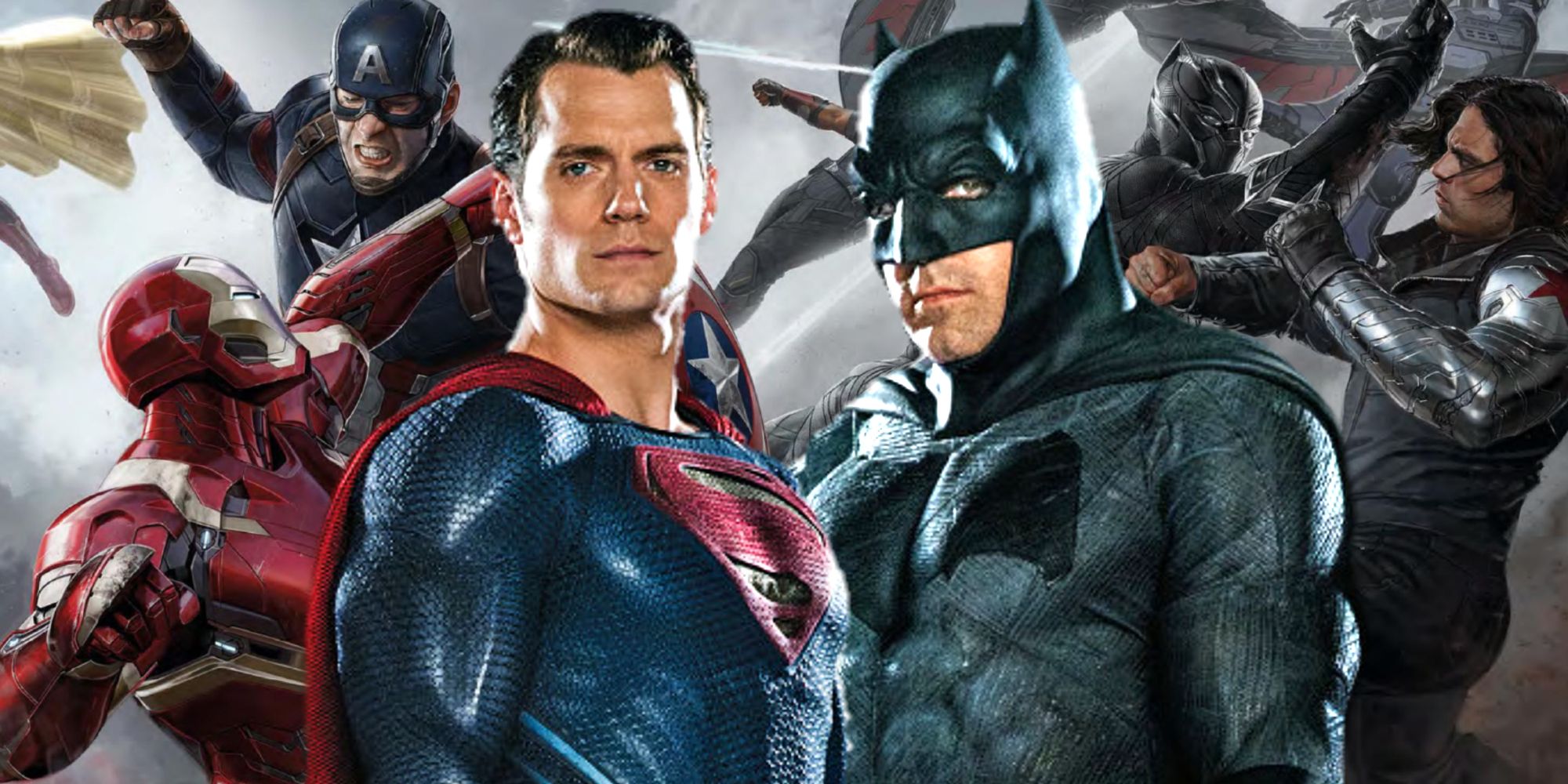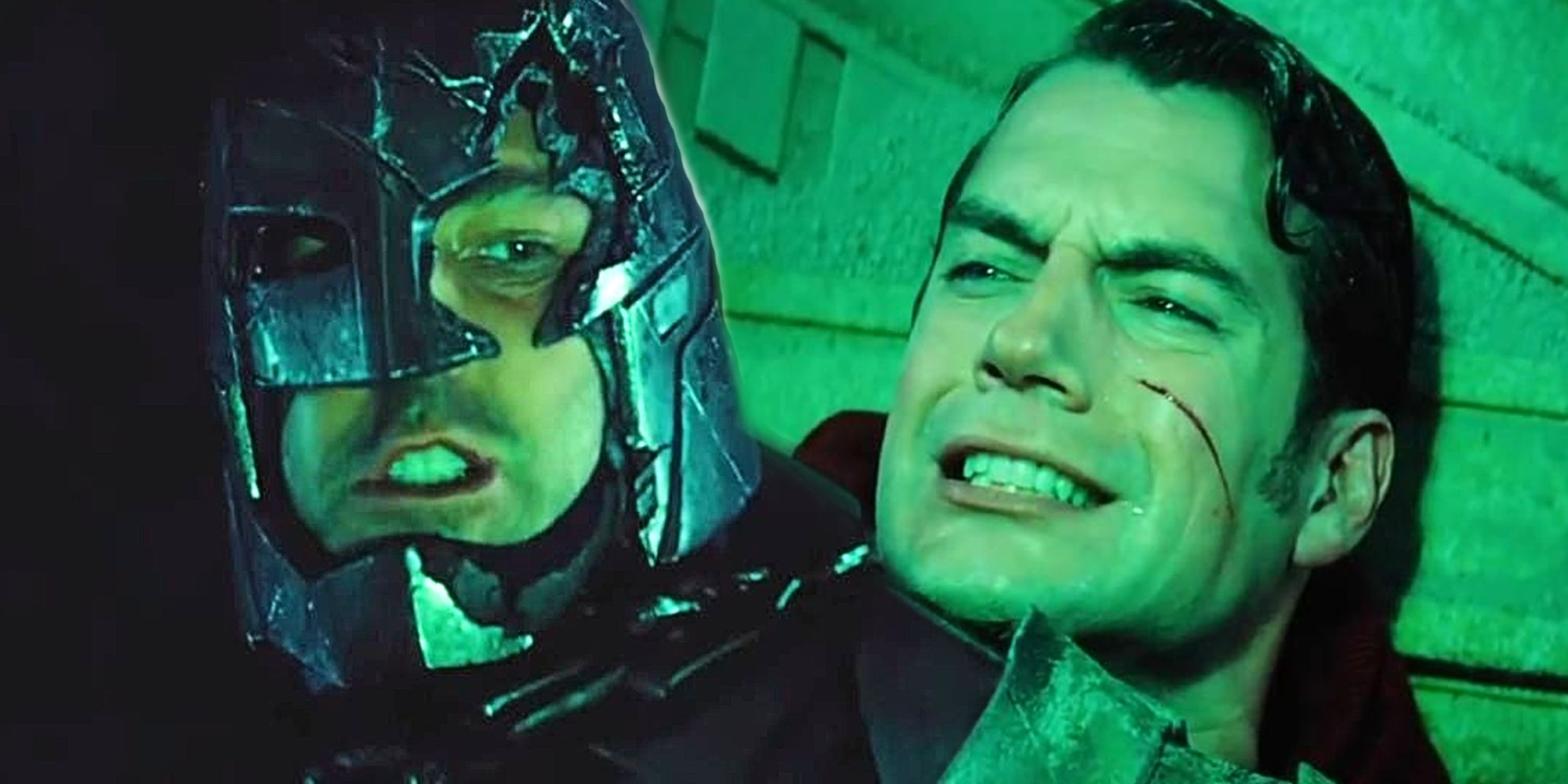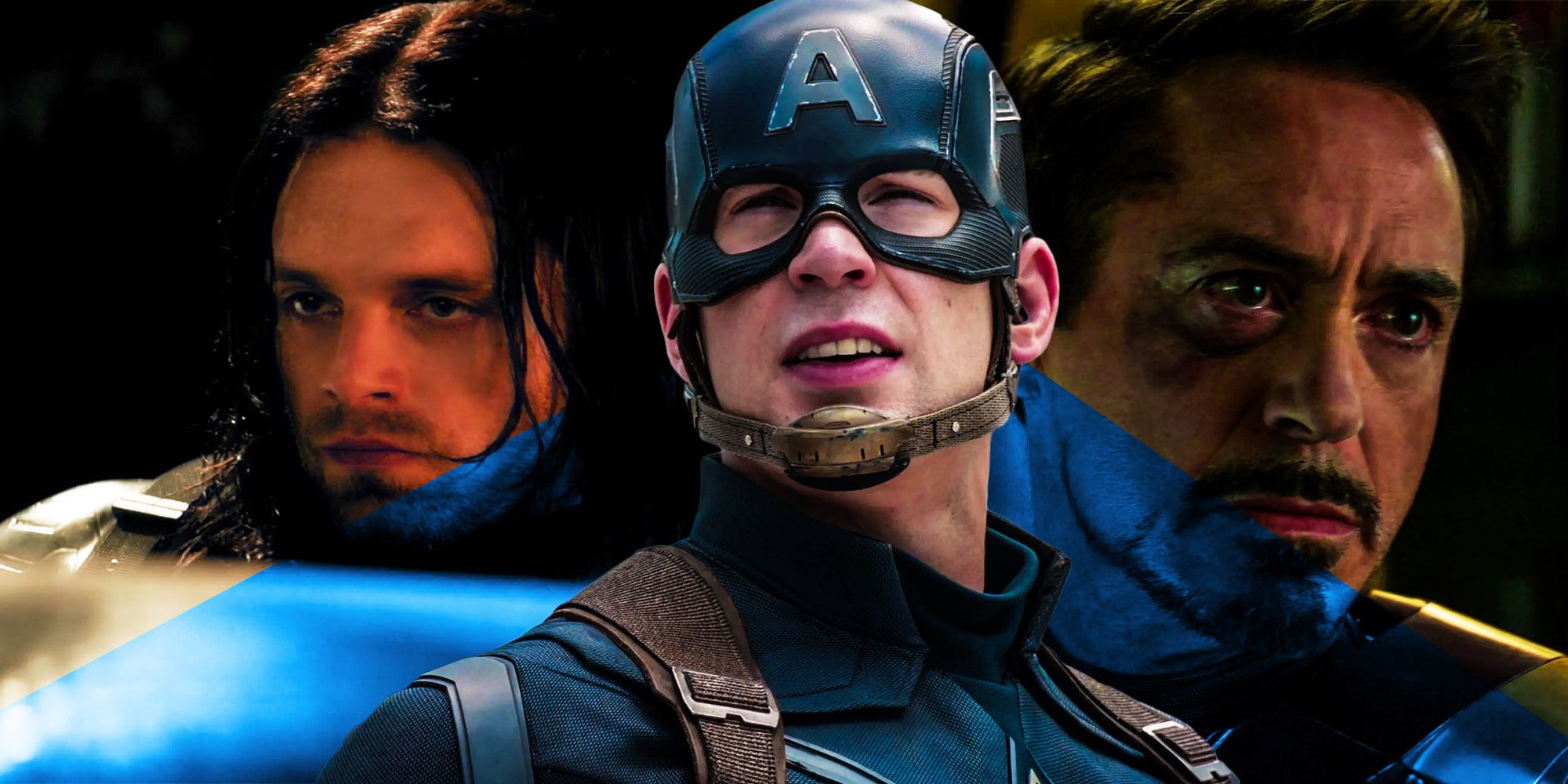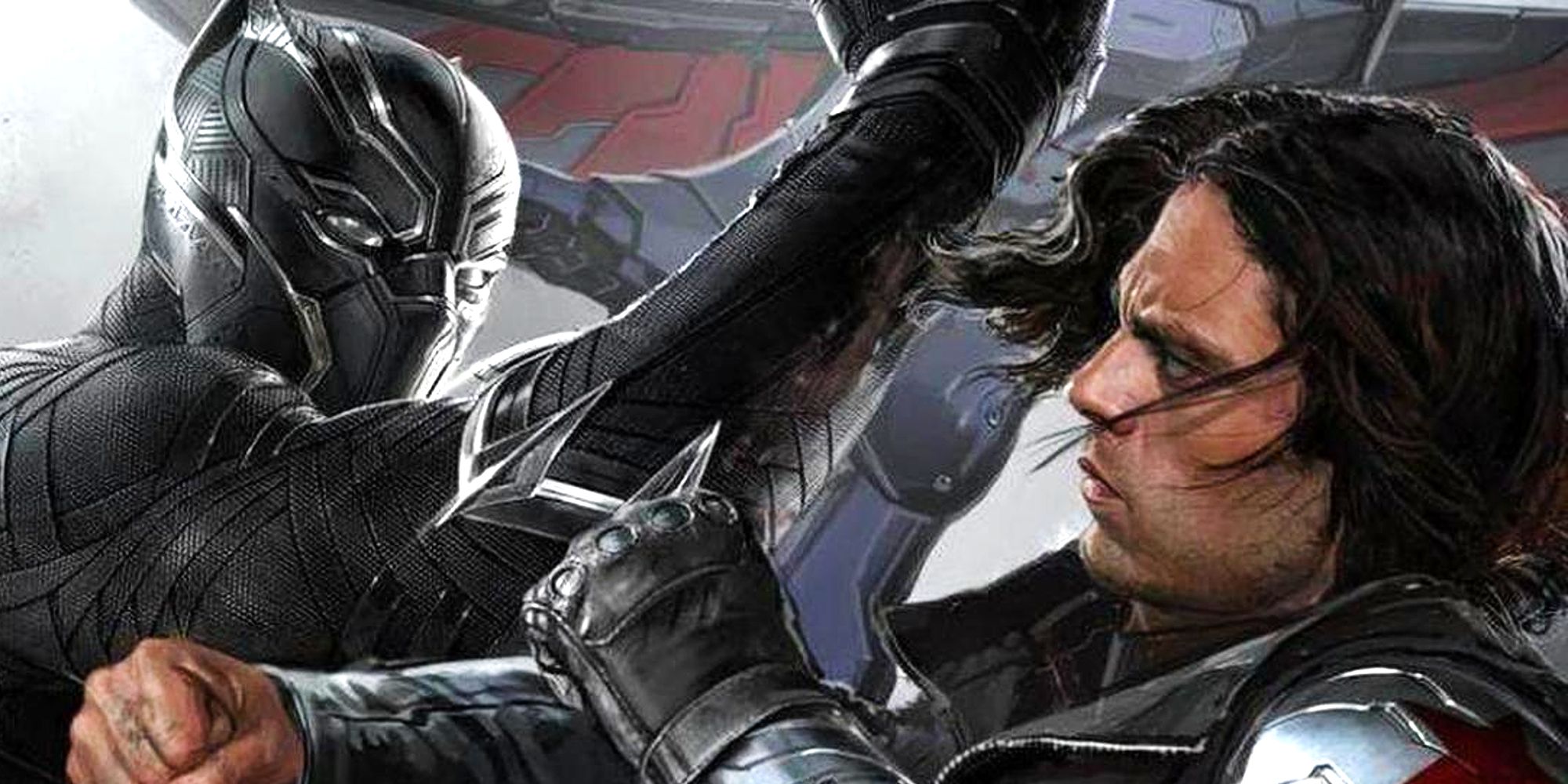The MCU's Captain America: Civil War told a similar story to the DCEU's Batman v Superman: Dawn of Justice, but it avoided BvS's controversial solution to the core conflict twice. 2016 marked the year where the Marvel Cinematic Universe and the DC Extended Universe most clearly competed on the big screen, with Captain America: Civil War and Batman v Superman: Dawn of Justice both focusing on the battle between their respective main heroes. But even though both movies were highly anticipated, the latter divided audiences more than it pleased hardcore fans.
Despite introducing the outstandingly-cast Batman and Wonder Woman, uniting the iconic DC trinity in live-action for the first time, and featuring breathtaking sequences such as Batman's warehouse battle and Superman's trial, Batman v Superman: Dawn of Justice signaled many problems for the DCEU. Zack Snyder's sequel to Man of Steel rushed the creation of the Justice League and killed off Superman during his second appearance. But most importantly, Batman v Superman failed to give a satisfying resolution to the conflict between the titular heroes.
This doesn't mean Batman v Superman: Dawn of Justice was a bad movie per se. However, Captain America: Civil War gave Iron Man and Captain America's battle a much more fitting ending. On top of that, Civil War also gave Black Panther and Bucky Barnes a cohesive conflict.
Why Batman vs Superman’s Conflict Didn’t Work
Batman v Superman: Dawn of Justice couldn't have started with a more perfect introduction to Batman - at least when it comes to the story - but this effective introduction goes on to be somewhat wasted. Bruce Wayne's attempts at saving innocents while Superman was fighting Zod justified his motivations for the rest of the movie, not only because his company and acquaintances were affected, but also because he experienced the catastrophe firsthand. The conflict becomes more complicated with the influence of Lex Luthor Jr., who blackmails Superman into fighting Batman and provides Batman with Kryptonite. Instead of using his nigh-unlimited power to try and solve the situation as quickly as possible, Superman is painfully slow to explain to Batman what is really happening, and instead allows him to take the lead with Kryptonite.
But beyond Batman and Superman's frustrating lack of communication, the end of their battle takes the cake as the most ludicrous part of the movie. Superman is only spared by Batman once he asks him to "save Martha", which is the name of both heroes' mothers. There was no reason why Superman would call his mother by her name, much less at that moment. And while it's understandable that Batman would be shaken by that name, it's unlikely that such a brutal and seasoned vigilante — with more battles under his belt than any other live-action Batman — would be so easily disarmed by such a common name.
Not only that, but Batman does a complete 180 in a matter of seconds and promises Superman that he will save Martha, all on the basis of her name. This is out-of-character decision only becomes more problematic in the theatrical cut of Justice League, where Batman is depicted as a borderline fan of Superman instead of the acting leader of the Justice League. All things considered, Batman's change in perspective isn't irrational, but it definitely is extremely rushed. Besides, if Superman had said "my mom" (a much more natural way to refer to her in such a critical moment), Batman's reaction would have been felt more logical and relatable.
Why Captain America vs Iron Man’s Civil War Conflict Worked
Captain America: Civil War isn't without its flaws. Perhaps the most common criticism the Russo Brothers' second MCU installment receives is the lack of life-or-death stakes for all of the Avengers, whose survival is almost guaranteed from the start due to their eventual return in future movies. While Batman v Superman: Dawn of Justice took a solid risk with the death of Superman, Civil War managed to provide Iron Man and Captain America with definitive consequences to their battle. Like Batman and Superman, Iron Man and Captain America drop the ideological conflict between accountability and freedom rather quickly. However, their clashing stances on what to do with Bucky Barnes and the personal implications of their battle do highlight their perspective on the Sokovia Accords.
Every unfortunate event in Captain America: Civil War pushes the two titular Avengers deeper into the same rabbit hole. The weight of Charlie Spencer's death on Tony Stark's conscience, the death of T'Chaka, War Machine's injuries, the shocking reveal of Bucky Barnes as the murderer of Tony Stark's parents, and the consequences of the Sokovia Accords all made a peaceful truce increasingly difficult. In the end, Captain America spared Iron Man's life, but he abandoned his Avenger status and his shield. Iron Man lost his team. Zemo defeated the Avengers without fighting them head-on. The Avengers disbanded, leaving the world completely vulnerable to Thanos' invasion. Nobody walked back on their motivations. Nobody died, yet no one was the same by the end.
How Black Panther and Bucky Subverted Batman vs Superman’s Conflict
Captain America: Civil War featured a second big battle between heroes similar to that of Batman v Superman: Dawn of Justice, and it could have easily made the same mistakes as its DCEU counterpart. Bucky Barnes was framed as T’Chaka’s murderer by Baron Zemo, which lead T'Challa to seek revenge. But eventually, Black Panther welcomed the former Winter Soldier in Wakanda, ready to help him leave his dark past behind. Why was this abrupt change in motivation less blunt than Batman's?
Black Panther chased the Winter Soldier and tried to fight him to death, and Bucky only mentioned that he didn't kill his father once while fighting. However, Bucky never apologized because his main motivation was to flee the Avengers and the authorities, as his past as the Winter Soldier made it impossible for him to clear his name from a crime he actually didn't commit. Bucky could have sworn to T’Challa that he was innocent as much as he wanted, but T'Challa would have never believed him. Besides, Bucky and Black Panther's conflict took place in the midst of a large-scale Avengers battle. At no point could Bucky convince T’Challa that he was innocent before Zemo revealed the truth. It was only until Black Panther got it directly from Zemo that he understood Bucky's side of the story. Therefore, taking him to Wakanda was a sign of forgiveness.
Batman v Superman: Dawn of Justice had all the elements to craft a coherent conflict and resolution. In fact, it works as an exciting movie from beginning to end. However, Captain America: Civil War succeeded on its main premise not only with its two lead heroes but also with two of its supporting characters.









